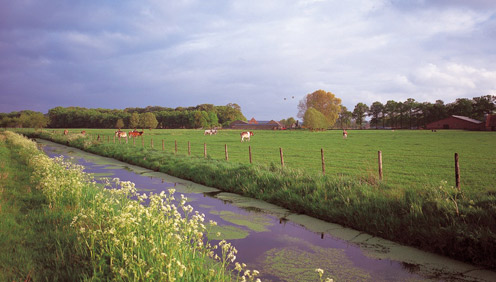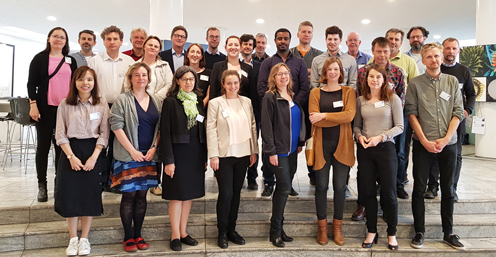EFFECT - Environmental public goods From Farming through Effective Contract Targeting

Demands on European agricultural landscapes are increasing. Food security concerns from a growing global population, increasing demands for low impact diets and for environmental quality of the countryside put multiple, and often conflicting pressures on land resources and management. While short-term agricultural profitability has become better aligned with longer-term sustainability, meeting environmental and climate targets remains among the most pressing European policy issues. As stressed recently by the European Commission, the forthcoming common agricultural policy (CAP) reform will contain an improved delivery model enabling member states to direct more resources towards both mandatory and voluntary instruments to enhance provision of environmental and climate public goods (ibid p. 19). Although the CAP will continue to be a unifying policy, it is being proposed, that member states should be encouraged to adapt or design new policy instruments for national implementation. These should pursue commonly-agreed environmental and climate policy targets, but be better suited to member states’ individual institutional, agricultural and environmental contexts.
Flexible approaches to agri-environmental schemes are already in use across the EU. However, many initiatives are either costly, are too ineffective in boosting environmental and climate service provision, have skewed distributional impacts, increase risks to the farmer, or are too bureaucratic in their implementation triggering excessive transaction costs. It is therefore essential that a package of innovative contractual arrangements is developed and empirically tested, so as to avoid inefficiencies and unintended outcomes. Environmental and agricultural stakeholders need guidance on when and where different contractual arrangements are likely to generate significant impacts in cost-effective ways.
The overarching objective of EFFECT will be to develop a theoretically well-founded and empirically well-adapted package of new contractual frameworks, enabling farmers to reconcile agricultural productivity with enhanced delivery of environmental and climate public goods and services to the benefit of society at large.
More information and news about the project are available at the project website: project-effect.eu
Project lead
Financed by
H2020
Duration
2019-2023
External partners
19 EU research and practice partners
Budget
5.000.000 EUR
 Photo: Partners at the EFFECT kick-off 22 May 2019, University of Copenhagen, Frederiksberg, Denmark
Photo: Partners at the EFFECT kick-off 22 May 2019, University of Copenhagen, Frederiksberg, Denmark
